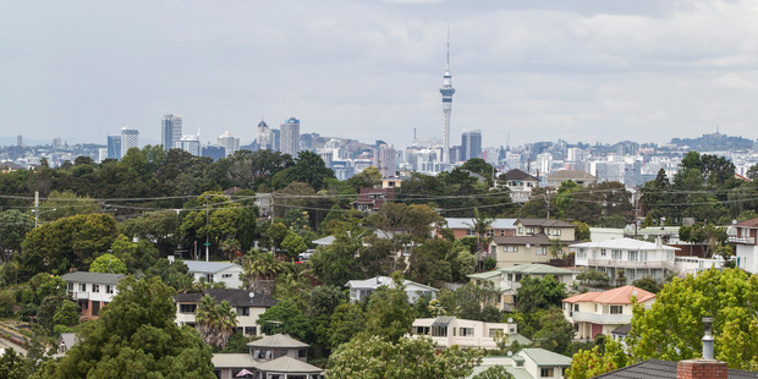
There's evidence Auckland is starting to become a buyer's market as a jump in listings and cooling asking prices begin to emerge.
Realestate.co.nz data out today shows new January listings in Auckland are up 5.5 per cent from the same time last year. At the same time demand from buyers has dropped by 25.39 per cent.
Average asking prices have remained relatively static at 943,002 compared with $949,898 in December.
Chief executive Brendon Skipper said that meant buyers can approach the market with more choice.
He warned it was however too early to say whether asking prices have been affected by the traditional seasonality.
"We've got to get out of this holiday hangover and sort of look at February to get a sure reflection."
The data shows nine out of 19 regions around the country achieved record-high spikes last month; most notably in Central Otago/Lakes where a 17.6 per cent increase raised the average asking price to $888,567.
"I think in the regions, we're seeing what we saw in Auckland last year. Things are happening a little bit earlier.
"There's still a little bit of a seller's market happening in those regions - especially when you look at the likes of Wellington and some of those outlying areas, which are starting to pick up like Auckland [did].
"You're seeing a really interesting dynamic here. Again, I don't think I would rest...and say this is how things will continue, because we're still in that January market - people are still on holiday,'' Skipper said.
"At the end of the day, there may be more choice out there, but the prices will still be relatively high.''
Meanwhile The latest QV House Price Index out today showed that nationally average residential values rose 1.4 per cent in three months to January 31. But many areas of Auckland including parts of Manukau and the North Shore, are now in negative territory.
Average house values in Auckland rose 12.8 per cent year on year but flat lined over the last three months with just 0.2 per cent growth.
Andrea Rush, QV national spokesperson, blamed bank lending restrictions but expects value drops to reverse soon and noted similar drops at this time last year.
"We've seen that trend with the introduction of the LVRs each time and then values have risen again. With the 20 per cent LVR, across-the-board growth slowed but then rose again at higher levels over time than previously
"However, since the 30 per cent LVR was introduced in late 2015, Auckland's annual rate of value growth has slowed from in the late teens and 20 percentile range back down to under 15 per cent," she said, with further cuts lately.
Values in parts of Hamilton and Christchurch also fell lately while values are rising in Tauranga, Wellington and Dunedin and other areas near main centres.
"We are now seeing a strong trend of value growth in regional centres around the country, particularly those situated within two to three hours' drive of the main centres that have seen very strong value growth recently such as Auckland, Wellington and Queenstown," Rush said.
"These include the Kaipara District just north of Auckland where values accelerated 6.4 per cent over the past three months and 25.9 per cent since January last year led by strong growth in places like Mangawhai now a favourite for those who are selling up and moving out of Auckland," she said.
"Similarly the Hauraki District south of Auckland and also commuting distance to Hamilton and Tauranga accelerated 10.8 per cent over the past three months and 30.3 per cent year on year with towns like Paeroa and Ngatea in high demand from movers and investors alike," she said.
QV FALLING HOUSE VALUES:
- Onewa: Values 1.9%
- Manukau central: 1.8%
- Manukau east: 1.3 per cent
- North Shore: 0.5 per cent
- Shore coastal: 0.3 per cent
- North Harbour: 0.9 per cent
- Waitakere: 0.1 per cent
- Auckland city south: 0.4 per cent.
-Hamilton north east values dropped 1.1 per cent, central and north west was down 1.2 per cent, south east down 2.2 per cent and south west down 1.5 per cent.
-Christchurch east values dropped 1.5 per cent and the hills area was down 2 per cent.
NZ Herald
Take your Radio, Podcasts and Music with you









